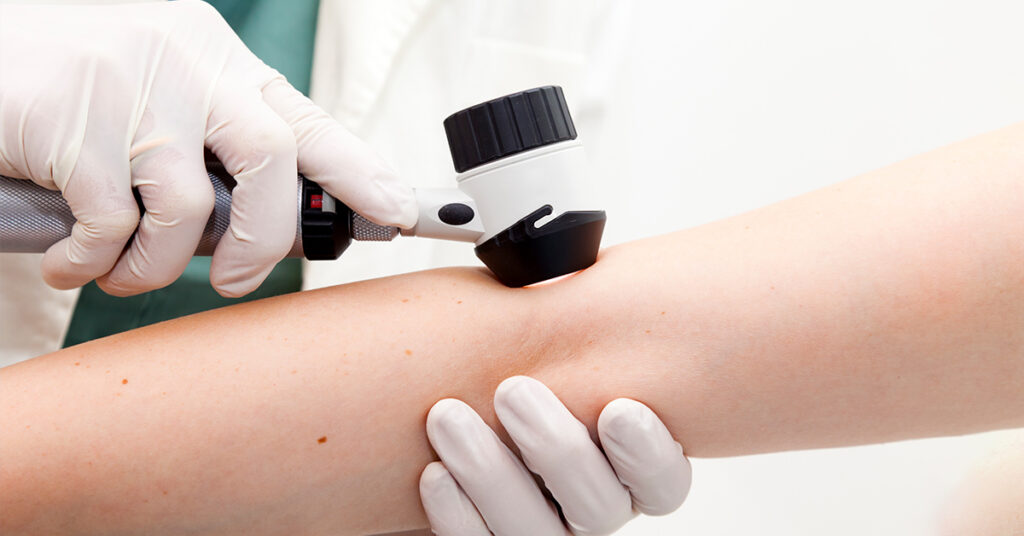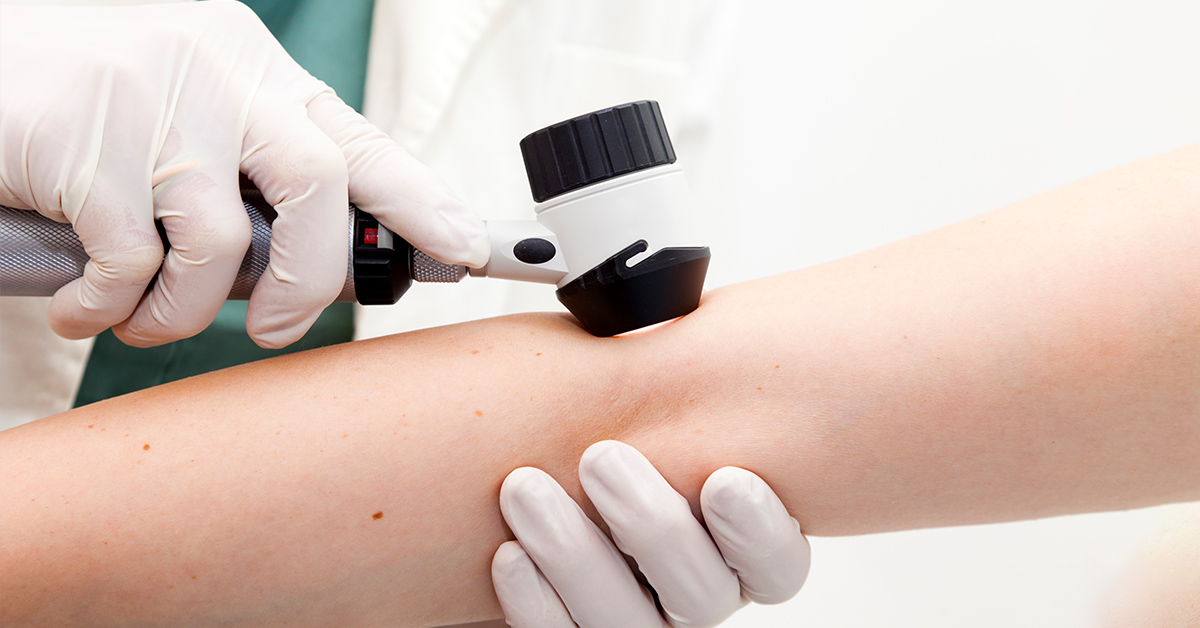
Melanoma Natural Treatment: Exploring Complementary Therapies and Evidence-Based Approaches
Melanoma, the deadliest form of skin cancer, demands prompt and effective medical intervention. While conventional treatments like surgery, radiation, and chemotherapy are the standard of care, many individuals seek complementary or adjunctive therapies to support their overall well-being during and after treatment. This article delves into the realm of melanoma natural treatment options, exploring the potential benefits, limitations, and scientific evidence surrounding these approaches. It’s crucial to understand that these therapies are not intended to replace conventional medical treatment but rather to complement it, potentially enhancing quality of life and supporting the body’s natural healing processes. Always consult with your oncologist or healthcare provider before incorporating any new therapies into your cancer treatment plan. Seeking melanoma natural treatment options requires careful consideration and informed decision-making.
Understanding Melanoma and Conventional Treatments
Melanoma develops when melanocytes, the cells responsible for producing melanin (skin pigment), become cancerous. Early detection is paramount for successful treatment. Conventional treatments vary depending on the stage and location of the melanoma, but commonly include surgical excision, lymph node dissection, radiation therapy, chemotherapy, targeted therapy, and immunotherapy. These treatments aim to remove the cancerous cells, prevent their spread, and boost the body’s immune response to fight the disease. While effective, these treatments can also have significant side effects, leading some patients to explore melanoma natural treatment options to manage these side effects and improve their overall health.
Exploring Potential Melanoma Natural Treatment Options
The field of melanoma natural treatment encompasses a wide range of therapies, including dietary modifications, herbal remedies, nutritional supplements, and lifestyle changes. While some of these approaches show promise in preclinical studies, it’s important to note that rigorous clinical trials are often lacking, and more research is needed to fully understand their efficacy and safety in treating melanoma. Always remember that melanoma natural treatment should be viewed as a complementary approach, not a replacement for standard medical care.
Dietary Modifications
A healthy diet rich in fruits, vegetables, and whole grains is crucial for overall health and can potentially support the body’s ability to fight cancer. Specific dietary recommendations for individuals with melanoma may include:
- Antioxidant-Rich Foods: Consuming foods high in antioxidants, such as berries, leafy greens, and colorful vegetables, may help protect cells from damage caused by free radicals.
- Omega-3 Fatty Acids: Found in fatty fish like salmon and flaxseeds, omega-3 fatty acids have anti-inflammatory properties that may be beneficial.
- Limiting Processed Foods and Sugar: Reducing the intake of processed foods, sugary drinks, and refined carbohydrates may help reduce inflammation and support a healthy immune system.
While dietary changes alone are unlikely to cure melanoma, they can contribute to overall well-being and potentially enhance the effectiveness of conventional treatments. Consulting with a registered dietitian or nutritionist can help individuals develop a personalized dietary plan that meets their specific needs. [See also: Cancer Fighting Foods]
Herbal Remedies
Certain herbs have been traditionally used for their potential anti-cancer properties. However, it’s essential to exercise caution when using herbal remedies, as they can interact with medications and may have side effects. Some herbs that have been studied for their potential anti-cancer effects include:
- Green Tea: Contains compounds called catechins, which have shown antioxidant and anti-inflammatory properties.
- Turmeric: Contains curcumin, a compound with potential anti-cancer and anti-inflammatory effects.
- Milk Thistle: May help protect the liver from damage caused by chemotherapy.
It’s crucial to discuss the use of any herbal remedies with your doctor or a qualified herbalist to ensure they are safe and appropriate for your individual situation. The efficacy of these herbs as a melanoma natural treatment is still under investigation.
Nutritional Supplements
Nutritional supplements, such as vitamins, minerals, and other compounds, are often used to support overall health and potentially enhance the body’s ability to fight cancer. Some supplements that have been studied for their potential benefits in melanoma include:
- Vitamin D: Studies have suggested a link between vitamin D deficiency and increased risk of melanoma. Supplementation may be beneficial, especially for individuals who are deficient.
- Selenium: An essential mineral that plays a role in immune function and antioxidant defense.
- Coenzyme Q10 (CoQ10): An antioxidant that may help protect cells from damage.
While some studies have shown promising results, more research is needed to confirm the efficacy of these supplements in treating melanoma. It’s essential to consult with your doctor before taking any supplements, as they can interact with medications and may have side effects. Using supplements as melanoma natural treatment should only be done under medical supervision.
Lifestyle Changes
Adopting healthy lifestyle habits can significantly impact overall health and well-being, potentially supporting the body’s ability to fight cancer. Some lifestyle changes that may be beneficial for individuals with melanoma include:
- Exercise: Regular physical activity can boost the immune system, reduce inflammation, and improve overall quality of life.
- Stress Management: Chronic stress can weaken the immune system. Practicing stress-reducing techniques such as yoga, meditation, or deep breathing can be beneficial.
- Adequate Sleep: Getting enough sleep is crucial for immune function and overall health.
These lifestyle changes can contribute to a stronger immune system and overall well-being, potentially enhancing the effectiveness of conventional melanoma treatments. These changes are a vital component of any melanoma natural treatment plan, although they are not a replacement for medical intervention.
The Importance of Evidence-Based Approaches
When considering melanoma natural treatment options, it’s crucial to prioritize evidence-based approaches. This means seeking out therapies that have been studied in clinical trials and shown to be safe and effective. Be wary of claims that promise miracle cures or that lack scientific support. Always discuss any complementary therapies with your oncologist or healthcare provider to ensure they are safe and appropriate for your individual situation.
The Role of Clinical Trials
Clinical trials are research studies that evaluate the safety and effectiveness of new treatments or therapies. Participating in a clinical trial can provide access to cutting-edge treatments and contribute to advancing our understanding of melanoma. If you are interested in participating in a clinical trial, talk to your doctor about available options. Clinical trials are essential in determining the effectiveness of different melanoma natural treatment strategies.
Finding Reliable Information
It’s essential to find reliable information about melanoma natural treatment from reputable sources. Some helpful resources include:
- National Cancer Institute (NCI): Provides comprehensive information about cancer, including melanoma and complementary therapies.
- American Cancer Society (ACS): Offers information about cancer prevention, detection, and treatment.
- Memorial Sloan Kettering Cancer Center: Provides information about cancer treatments and complementary therapies.
Be sure to evaluate the credibility of any information you find online and discuss it with your healthcare provider. Always prioritize information from trusted sources when researching melanoma natural treatment options.
The Bottom Line on Melanoma Natural Treatment
While conventional medical treatments remain the cornerstone of melanoma care, complementary therapies can play a supportive role in enhancing quality of life and potentially improving treatment outcomes. Melanoma natural treatment options should be carefully considered and discussed with your healthcare provider to ensure they are safe and appropriate for your individual situation. Prioritize evidence-based approaches and be wary of claims that promise miracle cures. Remember that complementary therapies are not intended to replace conventional medical treatment but rather to complement it. A holistic approach that combines conventional medicine with supportive therapies can help individuals with melanoma navigate their treatment journey and improve their overall well-being. The key to effective melanoma natural treatment is integration with conventional medical care, not replacement. It is important to always consult with your healthcare provider before starting any new treatment, including natural or complementary therapies. Understanding the potential benefits and risks of each approach is crucial for making informed decisions about your health. Continued research into melanoma natural treatment is essential to uncover the most effective and safe strategies for improving outcomes for individuals affected by this disease.

